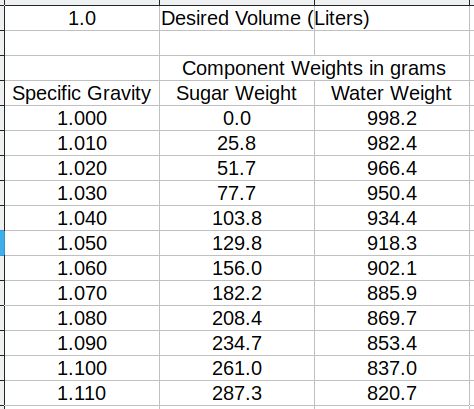I just bought a new hydrometer, because I realized my last one was giving me false readings (I tested it in water and realized it was off).
The one I just bought to replace it is also off. In tap water at 60 degrees it reads 1.006. I live in a city where, although our water is from wells, it is treated. Not sure if that even means anything, but I'm sure water could be a blanket term for any number of H2O concoctions that come out of faucets.
Is my tap water "heavy"? Or, do I need to try harder to find a quality made hydrometer?
I guess if my hydrometer is "reliably" off, I could just get used to knocking off .006 from all my readings.
Wondering about using a refractometer. I see people point out you have to do calculations to get correct post-fermentation gravity readings with them, but, are they more reliable?
The one I just bought to replace it is also off. In tap water at 60 degrees it reads 1.006. I live in a city where, although our water is from wells, it is treated. Not sure if that even means anything, but I'm sure water could be a blanket term for any number of H2O concoctions that come out of faucets.
Is my tap water "heavy"? Or, do I need to try harder to find a quality made hydrometer?
I guess if my hydrometer is "reliably" off, I could just get used to knocking off .006 from all my readings.
Wondering about using a refractometer. I see people point out you have to do calculations to get correct post-fermentation gravity readings with them, but, are they more reliable?












![Craft A Brew - Safale S-04 Dry Yeast - Fermentis - English Ale Dry Yeast - For English and American Ales and Hard Apple Ciders - Ingredients for Home Brewing - Beer Making Supplies - [1 Pack]](https://m.media-amazon.com/images/I/41fVGNh6JfL._SL500_.jpg)
















































